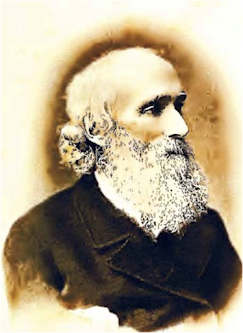While Florence Nightingale may be regarded as the pioneer of
modern nursing a now almost forgotten Dorset cleric played a not insignificant
role.
Reverend Sydney Godolphin Osborne from Durweston travelled
out to Turkey, at his own expense, to witness the appalling conditions in a
British military hospital in Scutari, Constantinople. This was during the
Crimean War (1853-56) when the British, French & Turks were fighting the
Russians. He found soldiers wounded and dying in horrifying conditions. There
were rats and lice in the hospital which was located close to a cesspit. He
observed men lying in bed with dysentery or with open sores who had not had a
change in linen for months. It is reckoned for every British soldier who lost
his life in battle there were seven who died due to disease.
He wrote:
‘I sought the truth and
took my own way to arrive at it. Whether that truth would please or displease
the public or the Government was to me a matter of indifference.’
Osborne spent six weeks in Turkey and met and observed the
work and organisational abilities of Florence Nightingale who had arrived a
few days before him.
‘Her nerve is
wonderful. I have been with her at very severe operations…I have known her
spend hours over men dying of cholera or fever.’
When he left Scutari, he passed a four mile long line of
occupied beds. Back in Britain he wrote ‘Scutari
& its Hospital’ – a book by Sydney Godolphin Osborne. Such was the
effectiveness among the public and parliamentarians of his publication,
exposing the hospital’s shortcomings and of Florence Nightingale’s good work that
a Parliamentary Committee of Enquiry was set up.
While Florence Nightingale after Crimea turned nursing
into a true profession, the Reverend Sidney Godolphin Osborne from Durweston played his part.
(Illustration: Sydney Godolphin Osborne)


Comments
Post a Comment